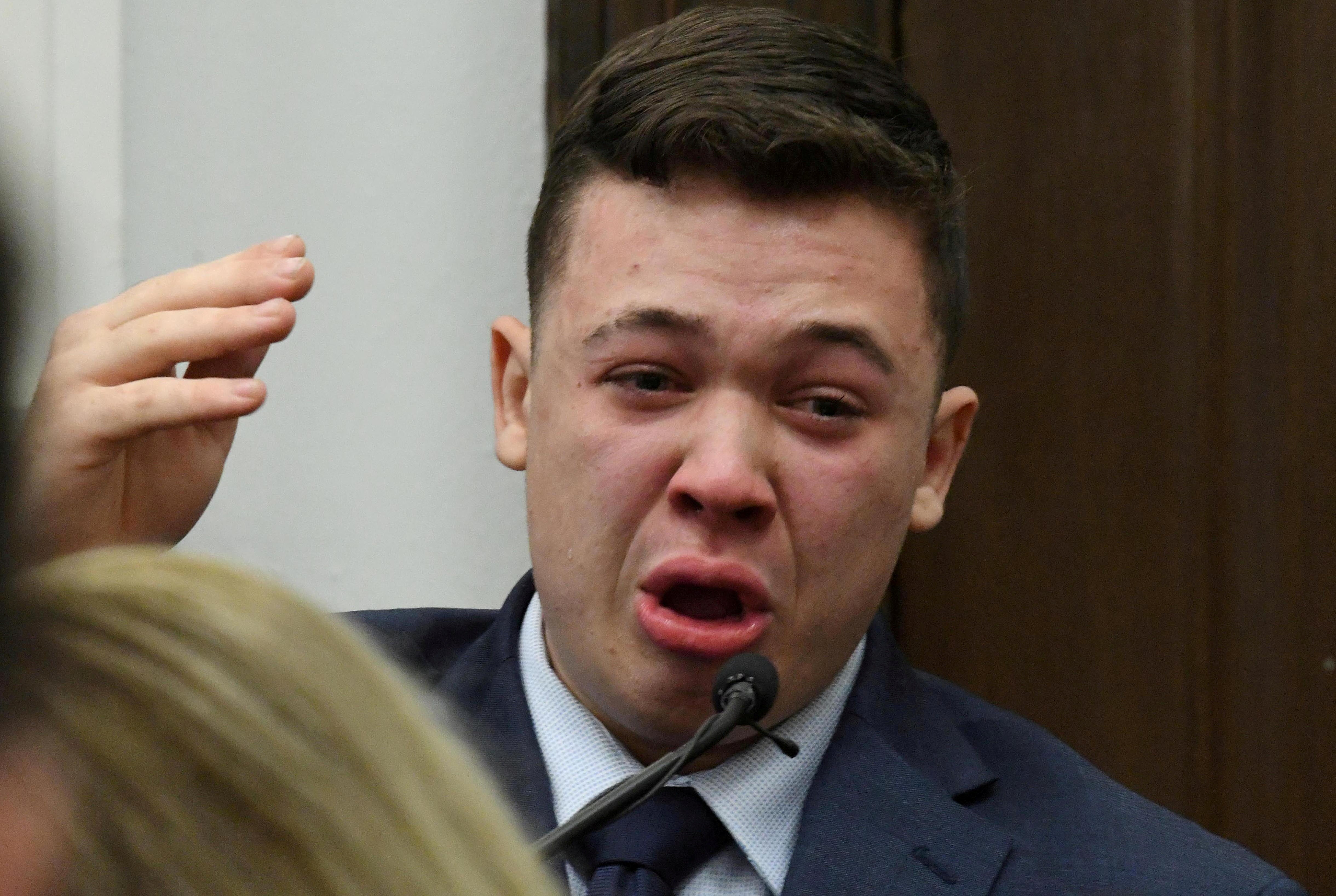Kyle Rittenhouse attorney says he’s ‘glad’ client shot ‘crazy’ Joseph Rosenbaum
Some of the last words jurors at Kyle Rittenhouse’s murder trial heard before starting deliberations were about the mental health of Joseph Rosenbaum

Your support helps us to tell the story
This election is still a dead heat, according to most polls. In a fight with such wafer-thin margins, we need reporters on the ground talking to the people Trump and Harris are courting. Your support allows us to keep sending journalists to the story.
The Independent is trusted by 27 million Americans from across the entire political spectrum every month. Unlike many other quality news outlets, we choose not to lock you out of our reporting and analysis with paywalls. But quality journalism must still be paid for.
Help us keep bring these critical stories to light. Your support makes all the difference.
The first man Kyle Rittenhouse fatally shot on the streets of Kenosha Wisconsin was “irrational and crazy,” Rittenhouse’s attorney told jurors at his murder trial.
Joseph Rosenbaum had been on medication for bipolar disorder and depression, and he was trying to take Rittenhouse's rifle, attorney Mark Richards said, suggesting there could have been more bloodshed if Rittenhouse hadn't acted.
“I’m glad he shot him because if Joseph Rosenbaum got that gun I don’t for a minute believe he wouldn’t have used it against somebody else," Richards said during closing arguments in the 18-year-old Illinois man's trial for killing Rosenbaum and another man and wounding a third during a chaotic night of protests in August 2020.
To some legal experts and other observers, Richards' remarks were a smart courtroom strategy and an accurate depiction of the threat faced by Rittenhouse, who says he shot the men in self-defense. But mental health advocates heard something different: a dangerous assumption that people living with mental illness are homicidal and need to be killed, and terminology such as “crazy" that they say is pejorative and adds to the stigma surrounding mental health issues.
Studies have shown that people with bipolar disorder and depression are more likely to hurt themselves than hurt others, said Sue Abderholden, executive director of the National Alliance on Mental Illness Minnesota. That's why NAMI's work includes training police officers to use de-escalation strategies when dealing with people who have a mental illness.
“You just don’t have someone shot down, particularly someone who is unarmed," she said.
Jason Lackowski, a former Marine who said he went armed to the Kenosha protests to protect property, testified during the trial that Rosenbaum acted “belligerently” that night and seemed to want "to entice someone to do something,” but did not appear to pose a serious threat to anyone. Lackowski said he turned his back on Rosenbaum and ignored him.
Rittenhouse didn't know Rosenbaum or his background when they crossed paths at the protest that followed the shooting of Jacob Blake, a Black man, by a white police officer. And the jury wasn't supposed to know much about him either.
During pretrial hearings, defense attorneys said they wanted to present evidence of Rosenbaum's past, including an Arizona conviction for having sex with a minor in 2002. They planned to argue that Rosenbaum, 36, was trying to take the then-17-year-old Rittenhouse’s weapon during their encounter because Rosenbaum wasn’t legally allowed to have a gun due to his criminal past. Prosecutors argued that the defense was trying to signal to the jury that Rosenbaum was a bad guy who deserved to die.
Judge Bruce Schroeder blocked defense lawyers from revealing the sex crime conviction at the trial. Jurors also were not supposed to hear about Rosenbaum's mental health history, which Schroeder said wasn't relevant because Rittenhouse didn't know it when he shot him.
But the information came out in court after prosecutors asked Rosenbaum’s fiancée, Kariann Swart, whether Rosenbaum — whom she said had just been released from a hospital — had taken medication earlier on the day he was shot. Schroeder later ruled that by asking that question, prosecutors opened the door for the defense to ask Swart what the medication was for. Under cross-examination, she told jurors it was for bipolar disorder and depression.
Swart also testified that Rosenbaum had returned from a Milwaukee hospital on the day of the shooting. The jury did not hear that Rosenbaum had been in a mental health ward following a suicide attempt.
Phil Turner, a former federal prosecutor who is now in private practice and who isn't involved in the Rittenhouse case, believes the testimony about Rosenbaum’s mental illness was “very important to the self-defense argument” and therefore fair game.
People including the jury, might agree that mental illness on its own does not cause someone to be violent, Turner said. But that information along with Rosenbaum's actions that night — from getting in the face of men armed with rifles to at one point chasing after Rittenhouse — likely was a “nodding their head kind of moment” for jurors.
“It fortifies the defense argument that this is the truth, this is the reality," Turner said.
Kim Motley, an attorney representing Rosenbaum’s estate, said she understands Richards' efforts to “vigorously defend” his client. But she called his comments about being glad Rittenhouse shot Rosenbaum — among the final words jurors heard before they started deliberating Tuesday following a roughly two-week trial — “disgusting” and offensive to people who struggle with mental illness.
“This trial isn't about the type of person Joseph Rosenbaum was,” Motley said “This trial is about his client, Kyle Rittenhouse.”
___
Find the AP’s full coverage of the Rittenhouse trial: https://apnews.com/hub/kyle-rittenhouse
Subscribe to Independent Premium to bookmark this article
Want to bookmark your favourite articles and stories to read or reference later? Start your Independent Premium subscription today.